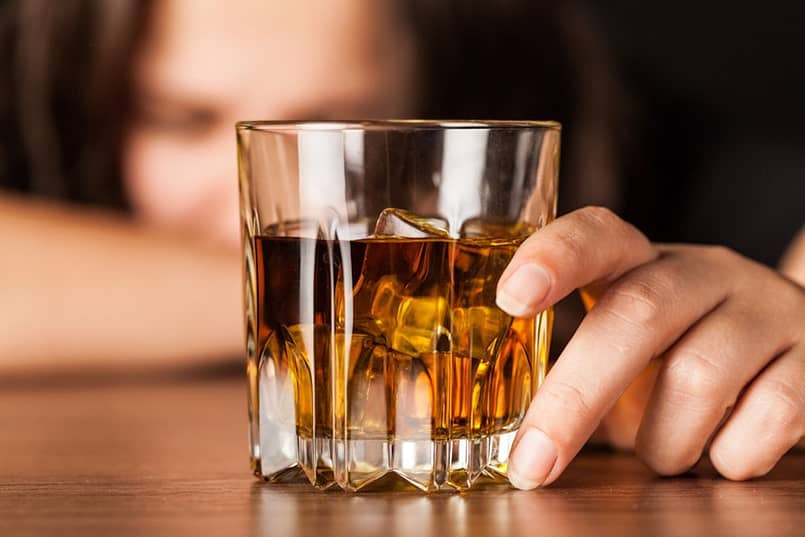Alcohol is a popular way to unwind and socialize, but did you know it can also mess with your hormones? Drinking alcohol, even in moderate amounts—typically up to one drink per day for women and two for men—can throw these delicate systems off balance. This can lead to mood, energy levels, and even reproductive health changes.
When it comes to alcohol and hormones, the effects can be quite significant. It can increase cortisol, leading to stress and weight gain, and elevate estrogen, impacting menstrual cycles and cancer risk. Additionally, alcohol may lower testosterone, affecting muscle mass and energy, and alter insulin sensitivity, raising the risk of diabetes. Understanding these effects can help you make smarter choices about drinking and its impact on your overall health.
What Are Hormones?
Hormones are chemical messengers produced by the endocrine glands and released into the bloodstream. They are crucial in regulating various bodily functions, such as growth, metabolism, reproduction, and mood. Despite being produced in small amounts, these hormones have powerful effects on the body by traveling through the bloodstream and binding to specific receptors on cells, triggering responses that influence physiological processes.
The production and release of hormones are meticulously regulated by feedback mechanisms within the body. When hormone levels drop below a certain threshold, signals stimulate their production, and when levels become too high, signals slow down production. This delicate balance ensures the body functions optimally. Hormones are produced by various glands and organs, including the thyroid, adrenal glands, and pancreas, coordinating complex processes essential for overall health and well-being.
What are the Types of Hormones?
Estrogen, primarily produced in the ovaries, is crucial for the development and regulation of the female reproductive system and secondary sexual characteristics, as well as playing a role in bone health, cardiovascular function, and skin elasticity. Progesterone, also produced in the ovaries, is essential for regulating the menstrual cycle and maintaining pregnancy by preparing the uterus for the implantation of a fertilized egg, and supporting early pregnancy by maintaining the uterine lining.
Produced mainly in the testes, testosterone is the primary male sex hormone responsible for the development of male reproductive tissues, including the testes and prostate. It also promotes secondary sexual characteristics such as increased muscle and bone mass, and the growth of body hair. In females, testosterone is produced in smaller amounts and contributes to libido, energy levels, and bone health.
Insulin is produced by the beta cells of the pancreas. It plays a crucial role in regulating blood glucose levels by facilitating the uptake of glucose into cells for energy production or storage as glycogen in the liver and muscles. Proper insulin function is vital for maintaining normal blood sugar levels and preventing conditions like diabetes mellitus.
Cortisol is produced by the adrenal glands and is often referred to as the “stress hormone.” It helps the body respond to stress by increasing glucose in the bloodstream, enhancing the brain’s use of glucose, and increasing the availability of substances that repair tissues. Cortisol also has other important functions, such as regulating metabolism, reducing inflammation, and controlling the sleep-wake cycle.
Does Drinking Alcohol Affect Your Hormones?

Drinking alcohol can significantly impact your hormone levels, leading to various physiological changes. It influences the endocrine system, affecting hormones like testosterone, estrogen, cortisol, insulin, and thyroid hormones.
Additionally, alcohol raises cortisol levels, leading to stress, weight gain, and sleep disturbances, and can affect insulin and thyroid function, increasing the risk of diabetes and metabolic issues. Understanding these effects is crucial for making informed decisions about alcohol consumption and overall health. Our inpatient rehab provides a structured environment to help individuals manage these hormonal imbalances and promote recovery.
Alcohol and testosterone can have a significant relationship. Alcohol can lower testosterone levels in the body. When you drink too much, it can interfere with the way your body produces this important hormone. This can lead to issues like reduced muscle mass, fatigue, and even problems with mood and libido. Over time, consistent alcohol consumption can significantly impact overall health and well-being.
Alcohol can increase estrogen levels, especially in women. Drinking can make your body produce more estrogen, which might cause hormonal imbalances. This can lead to problems like weight gain, mood swings, and even an increased risk of certain cancers. Monitoring alcohol intake is crucial to maintaining hormonal balance and reducing health risks.
Alcohol can cause your blood sugar levels to drop too low or spike too high. Drinking affects your liver’s ability to manage blood sugar, which can be risky, especially for people with diabetes. This can lead to symptoms like dizziness, confusion, and even serious health problems if not managed properly. Maintaining a healthy lifestyle includes being mindful of alcohol’s impact on blood sugar levels.
What Parts Of the Body Does Alcohol Affect?
Alcohol has a widespread impact on various organs and systems within the body. Understanding the extensive impact of alcohol on the body underscores the importance of moderating alcohol consumption to maintain overall health and well-being.
Alcohol is processed in the liver, converting it into the toxic acetaldehyde. Chronic drinking overwhelms the liver, leading to fatty liver disease, hepatitis, and cirrhosis. Medical detoxification involves the liver metabolizing harmful substances, but excessive alcohol hinders this, causing toxic buildup. Hydration, nutrition, and abstinence are essential for liver recovery.
Alcohol affects neurotransmitters, increasing the activity of GABA, which inhibits brain activity, and decreasing glutamate, which excites brain activity. Chronic use can lead to long-term cognitive impairment, including memory loss and decreased problem-solving abilities. It can exacerbate mental health issues such as depression and anxiety and lead to alcohol use disorder.
Heavy drinking increases the risk of high blood pressure, heart disease, and stroke. It can also cause cardiomyopathy, where the heart muscle weakens and cannot pump blood efficiently. Alcohol can cause arrhythmias, and irregular heartbeats that can be dangerous and potentially life-threatening.
Alcohol can interfere with the balance of calcium and vitamin D, essential for maintaining strong bones, leading to decreased bone density. Individuals who consume alcohol heavily are at an increased risk of fractures and osteoporosis.
Alcohol can cause inflammation of the stomach lining (gastritis) and pancreas (pancreatitis), leading to digestive issues and pain. Chronic consumption weakens the immune system, making the body more susceptible to infections. In men, it can decrease testosterone levels and fertility. In women, it can disrupt menstrual cycles and increase the risk of fetal alcohol spectrum disorders during pregnancy.
Alcohol and Hormones: How Are Women Affected?
Alcohol can mess with women’s hormones in a lot of ways. It can throw off your menstrual cycle, making your periods irregular or even stopping them altogether. Drinking raises estrogen levels, which might increase the risk of breast cancer, and messes with other hormones like progesterone and testosterone, affecting things like fertility and libido. Alcohol affects estrogen levels by interfering with the liver’s ability to metabolize it, leading to an accumulation of estrogen in the body. For pregnant women, alcohol can be especially dangerous, leading to serious issues like fetal alcohol syndrome. In addition, it can weaken your bones by lowering estrogen, which is a big deal for postmenopausal women who are already at risk for osteoporosis.
On top of that, alcohol can increase cortisol levels, making stress and anxiety worse. It also harms the liver, which is crucial for breaking down hormones, leading to even more hormonal issues. Knowing these risks can help women make better choices about their alcohol intake to keep their hormones in check.
Alcohol and Hormones: How Are Men Affected?
Alcohol can also disrupt men’s hormones. Drinking too much can lower testosterone levels, which is the hormone responsible for things like muscle mass, libido, and energy. When testosterone levels drop, guys might experience lower sex drive, difficulty building muscle, and even mood swings. Over time, this hormonal imbalance can lead to more serious health issues like erectile dysfunction and decreased sperm production, affecting fertility.
Alcohol interferes with the brain and testes, where testosterone is produced. It increases the conversion of testosterone to estrogen, the primary female hormone, which can lead to symptoms like breast tissue development in men. Additionally, alcohol can boost cortisol levels, the stress hormone, which further reduces testosterone production. All these changes disrupt the body’s hormonal balance, leading to significant physical and emotional changes.
How Long Do Hormones Take to Balance After Quitting Alcohol?
The time it takes for hormones to balance after quitting alcohol can vary significantly from person to person, depending on factors like the duration and extent of alcohol consumption, overall health, and lifestyle.
In the first few weeks after quitting alcohol, many people start to notice improvements in their hormone levels. Testosterone levels, which are often suppressed by alcohol, can begin to rise, leading to improvements in energy, mood, and libido. For women, menstrual cycles may start to regularize as reproductive hormones begin to stabilize.
Over the next few months, as the liver and other organs continue to recover from the effects of alcohol, hormone levels can continue to normalize. This period often sees further improvements in reproductive health, including increased fertility in both men and women. Stress hormones like cortisol may also start to decrease, reducing overall stress and anxiety levels.
After several months of abstinence, most individuals will see a significant restoration of hormonal balance. Testosterone levels in men and estrogen and progesterone levels in women should reach more stable levels. Long-term abstinence can lead to sustained improvements in overall health, including better sleep, improved muscle mass, and healthier skin.
When To See A Specialist
If you are concerned that alcohol could be impacting your hormones, there are many things you can do at home to rebalance, including cutting alcohol consumption, improving your diet, and focusing on fitness. However, there are certain situations when it’s important to see a specialist:
If you continue to experience symptoms such as low libido, erectile dysfunction, irregular menstrual cycles, or mood swings even after reducing or eliminating alcohol intake, it might be time to consult a healthcare provider.
Signs of severe hormonal imbalance, like significant changes in weight, chronic fatigue, severe acne, or unexplained hair loss, warrant professional evaluation.
If you and your partner are struggling to conceive and you suspect alcohol might be affecting your reproductive health, seeking advice from a fertility specialist or endocrinologist can be beneficial.
If you have a history of chronic alcohol use and are experiencing multiple health issues, a specialist can help you develop a comprehensive treatment plan to address both your hormonal health and any other medical concerns.
If you experience depression, anxiety, or other mental health issues that you think might be linked to hormonal imbalances from alcohol use, seeing a mental health professional can provide you with the support and treatment you need.
Seeking specialist care can help you get a proper diagnosis and treatment plan tailored to your specific needs, ensuring a more effective recovery and long-term health improvement.
Our Alcohol Rehab Center in South Florida Can Help

Are you or a loved one struggling with alcohol addiction and its effects on your health? Our alcohol rehab center in South Florida can help. At Ambrosia Behavioral Health, we understand the dangerous impact of alcohol on your hormones and overall well-being. We offer personalized treatment plans to guide you toward recovery and restore balance to your life. Don’t let alcohol control your health any longer.
Alcohol and hormones are closely linked, and addressing this aspect is crucial in the recovery process. Our experts are here to support you every step of the way. Contact us today and start your journey to freedom from addiction.



